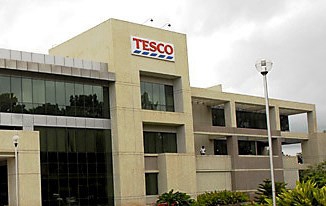An internal study reflected a gap in terms of deliveries, as the retail environment required leaders capable of working effectively across organisational lines and also contributing to customers and colleagues.
Tesco Hindustan Service Centre (HSC), the worldwide operations and technology centre for the British retailer, Tesco, claims to have found the formula to enhance the capabilities of its managers through a nine-month programme.
Its operations in India, which employ around 6,500 personnel, had conducted a colleague engagement study called ‘What Matters to You’ (WMTY) in 2013, to obtain feedback and insights on the needs of managers from across functions.
It was found, that there was a certain gap somewhere in terms of deliveries as the retail environment required leaders to be able to work effectively across organisational lines and also contribute to their customers and colleagues.
“This is when we turned our attention to get more managers to ‘step up’ and expand their ability to manage more complex operations in a changing retail environment,” says, Anju Sethi, head, learning & development and recruitment, Tesco HSC.
This led to the creation of a programme, ‘Being a Great Manager’, which was finally rolled out in 2014.
This programme blends the use of self-assessments, individual coaching, developmental sessions, simulations, and individual action learning assignments — all designed to help stretch the high potential manager.
This nine-month long programme starts with essential management skills, followed by an individual action-learning assignment for approximately 2–3 months.

In the second step, the participating managers enhance their coaching skills, and finally end up gaining developmental experience with understanding, accountability and courage.
In the dynamic retail market, which demands immediate attention to problems, managers are often seen fire-fighting or meeting short-term objectives. In the process, they always miss out on the larger scheme of things. This programme claims to play a role in enhancing the farsightedness of managers and providing long-term perspectives in terms of team management and relationship building.
The programme has several other aspects, such as the ‘leaders teaching leaders’ model, where the senior managers of the company are asked to act as facilitators and teachers. This has led to a situation where not only is the senior management comfortable teaching within their areas of focus or expertise, but they have also become adept at facilitating and modelling open dialogues and exchange.
The learning is not limited only to internal resources; external experts are also called in as and when required.
In addition, creative simulations are practised to spark out-of-the-box thinking among the participants. They are also made to get hands-on experience on the application of tools and practices, which is blended into the design of both formal and informal sessions.
When asked about the response to the programme, Sethi quips, “We looked at the satisfaction level of managers as a measure. Feedback from colleagues is the true reflection of the programme’s success.”




3 Comments
Congratulations Anju. Job done extremely well.
Congrats Anju!!
A very good intervention. Thank you for sharing with us.
Congratulations!!!!